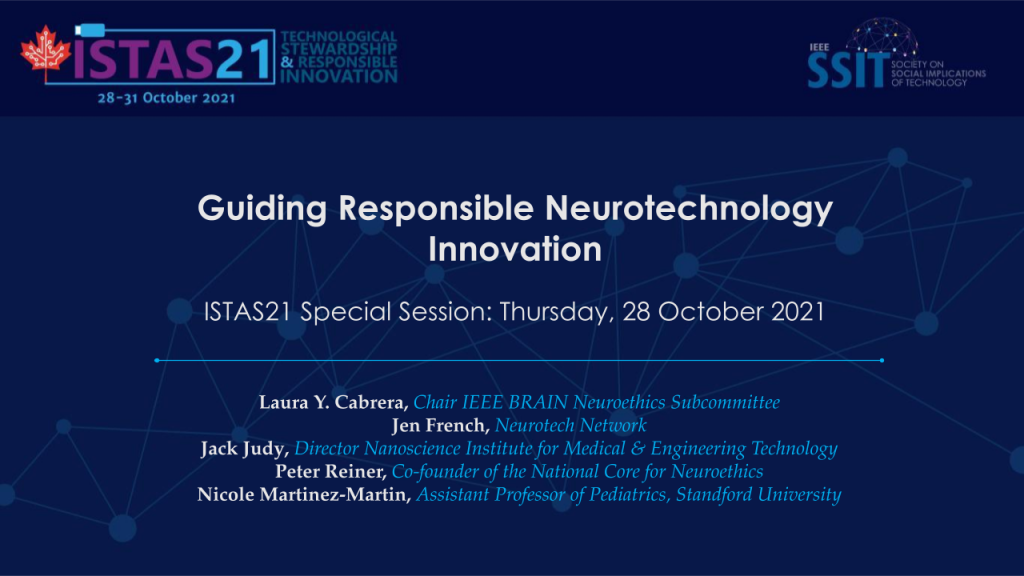
The Special Session “Guiding Responsible Neurotechnological Innovation” took place during IEEE International Symposium on Technology and Society (ISTAS) 2021 on 28 October 2021.
The session aims to foster an interdisciplinary conversation about key ethical, legal, social and cultural issues around the use and development of neurotechnology for different domains of application.
Click here to watch the recording of this special session.
Facilitator: Laura Y. Cabrera, Chair IEEE BRAIN Neuroethics Subcommittee
Presenters:
Jen French, Neurotech Network, user perspective of our work, and contributor to the Medical Working group.
Jack Judy, Director Nanoscience Institute for Medical & Engineering Technology, Tech Lead of several Working Groups, University of Florida
Peter Reiner, Professor in the Department of Psychiatry, co-founder of the National Core for Neuroethics, Ethics lead Wellness Working group, University of British Columbia
Nicole Martinez-Martin, Assistant Professor of Pediatrics, Center for Biomedical Ethics, Ethics Lead Legal Working Groups and other groups, Standford University
This session features representatives from the engineering, neuroethics, and end user communities of neurotechnologies who are contributing to different working groups of the IEEE Neuroethics Framework. The session aims to foster an interdisciplinary conversation with the audience on key ethical, legal, social and cultural issues around the use and development of neurotechnology for different domains of application. Each panelist first presents a brief overview of the main ethical, legal, social and cultural themes we have identified for different neurotechnology domains of application. During the second part of the conference session, moderator Laura Y. Cabrera leads a moderated-discussion among the panelists to address three main questions: How do the identified issues overlap, or are they unique to a given domain of application? How might this IEEE neuroethics framework differ from other neuroethics frameworks which have been more oriented to neuroscientists? How can the engineering community improve stewardship and responsible innovation regarding neurotechnologies? The session concluded with an open discussion with the audience (not included in the recording) to address questions and to engage with comments and suggestions.






 JOIN SSIT
JOIN SSIT